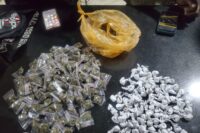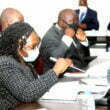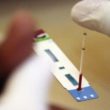MEDICAL practitioner Dr Wezi Sunkutu says the recalling of drugs from circulation is normal practice and is part of the systems that have been put in place to ensure quality assurance to the citizenry.
And Dr Sunkutu says Zambia does not need a lockdown but enhanced adherence to prescribed prevention measures and increased capacity to conduct mass testing, which is key to effective COVID-19 management.
In an interview, Dr Sunkutu said drug recalls were normal and were usually effected in batches.
“It’s part of procedure, I mean, systems are made on how stuffs is handled. So, if you look at the way, even any product in general is made, there are ways of sampling, and testing if something is meeting the standards. So, if you make one million products, it’s not like one million products will be tested, it’s like a random sampling arrangement. So, you find that in all industries like where you make products; when you release stuff, there is a procedure for Zambia like before it’s sent out, it gets checked for if it’s meeting those set standards, each country has got set standards. Now, as we do that, again, we are doing some sampling. If we receive a million samples, they won’t test everything, they will sample a few batches so you find as you release into the market, you might find some of them, which are defective so that’s why each of those, which are in batches, if something is wrong, they will take note of the batch and then recall that batch number. So, there is nothing wrong with that, that’s the way systems are made, like in an ideal situation. That happens, it’s just that if there is no sort of scandal in the media, but technically, that always happens and it’s part of quality assurance,” Dr Sunkutu said.
He, however, observed that in Honeybee’s case, someone failed to do the correct thing because as the red flag was lifted, the defective products were not recalled on time.
“In this case, it’s just a different issue because from that Honeybee thing, you find that when the red flag was lifted, procedure wasn’t followed. Someone didn’t do the right thing. So, that recall is normal, it’s just where you are trying to assess: of the 10 things we got, are we recalling everything? Are we not working independently, with autonomy or are they scared of someone or something like that? But otherwise, systems are made to be followed so when there is a gap and someone is not doing the right stuff, you have a problem,” Dr Sunkutu said.
And he advised government against implementing a nationwide lockdown as Zambia was not African country in the SADC region grappling with COVID-19 pandemic.
He observed that neighbouring countries had managed to contain the virus while keeping their borders open.
“Instead of just a lockdown, you see, the way things are handled, there are different strategies. Like what happened, previously you will find certain schools of thought will say, ‘let’s lockdown.’ Others will say, ‘no, there is no need for a lockdown.’ But we can strengthen these corrective measures because it’s a balance, you weigh the risks and the benefit. So, what’s the benefit of completely locking down? Of course, it will break transmission because without me coming in contact with you, you won’t get it, you minimise the risk. Now, what is the risk, people have to survive so when someone is running the country, you have to balance between the benefit of something and the risk, so that’s where, now, someone in authority will take responsibility and give direction, in this case it’s our President (Edgar Lungu),” he said.
“Because there are certain countries, like Taiwan, to the best of my knowledge, from the time it started in January, last year, they haven’t locked down, but they have strengthened these public health measures of masking up, social distance and mass testing, they haven’t closed any borders. They had declared a state of emergency, but they didn’t make a curfew. So, the system was on high alert. So, from January, last year, until the last time I checked, they only had seven deaths, only seven. So, it doesn’t mean that you can only control it by locking down. Other places, they are doing social distancing, but not wearing masks and they stick by it.”
He, however, expressed concern over the country’s capacity to do mass COVID-19 screening and testing, which is a vital measure to tackle COVID-19.
“So, all you do is, whatever you do, be consistent. For us, the main challenge, which I think hampers us is the erratic…Right now, I don’t know if we are doing the mass screening, like going into the community and actually checking people, in the shops, whatever, everyone screens you. I am not sure if we have the capacity to do that. What we do is we wait for people to have symptoms and then they avail themselves to the hospital, and mostly, it’s too late because if you are symptomatic, how many people have you spread it to? Before you become symptomatic, you can already start shedding off. So, the issue is on the mass testing and also the ability to test. The mass testing, the ability to make sure that you do these preventive measures; it’s a combination of stuff, it’s not just one thing,” said Dr Sunkutu.












